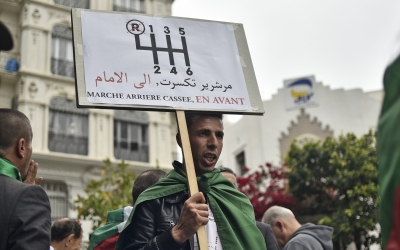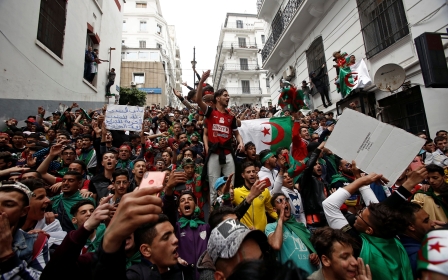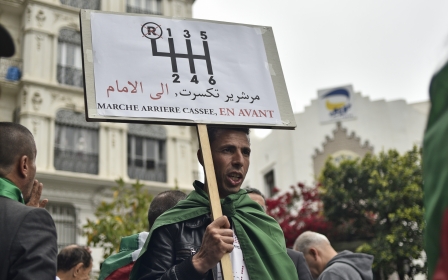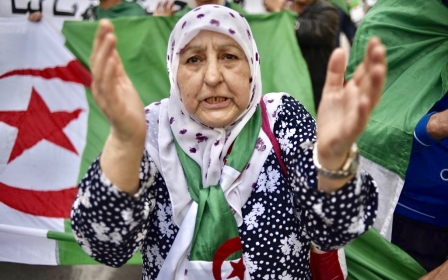Algeria: Who is Mohamed Djemai, the new head of the FLN?
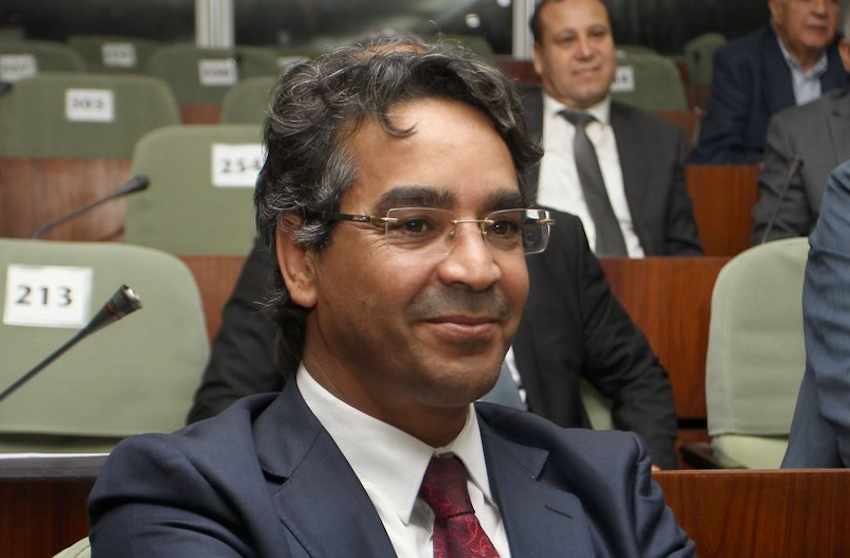
The election of businessman Mohamed Djemai to the head of Algeria's ruling National Liberation Front (FLN) earlier this week after a meeting in Algiers has been met with derision, with a party insider calling it "catastrophic".
"This election is catastrophic for the image of the party," the FLN executive told HuffPost Maghreb, on condition of anonymity. "While Algerians are demanding accountability from their leaders, the FNL elects a man who has things to hide."
A parliament member for 17 years and vice-president of parliament's lower chamber for nine of those, Djemai was one of the most enthusiastic supporters of the fourth and fifth mandates of ex-president Abdelaziz Bouteflika.
Bouteflika, who also previously headed the FLN, was forced to renounce his bid for a fifth term after hundreds of thousands of Algerians held widespread protests against his rule.
With his election, Djemai replaces Moad Bouchareb, another young party leader, who also serves as president of the country's parliament. Bouchareb was parachuted into both roles by ex-president Bouteflika's inner circle.
Bouchareb, little known up until that point, replaced ex-minister Djamel Ould Abbes at the head of the party, after Abbes was forced to resign by those with close ties to Bouteflika in November 2018.
Abbes still lays claim to the role of FLN chief. As a senator, however, he is resisting an attempt to strip him of his parliamentary immunity over corruption allegations.
Support for fifth mandate
Despite appearing to be rivals, Abbes, Bouchareb and Djemai share a position that is radically opposed to the central demand of the protest movement that has shaken Algeria since 22 February.
They all enthusiastically supported Bouteflika's bid for a fifth term as president.
In February, Bouchareb even went so far as to declare, in an FLN meeting in the western Algerian town of Oran, that "God sends reformers to each country ... In 1999, God sent President Abdelaziz Bouteflika to reform the Algerian nation."
At the beginning of that same month, only a few days before the mass demonstrations against Botueflika's fifth term kicked off, Djemai told news channel France 24 that "there was no one in Algeria who could challenge Abdelaziz Bouteflika for the presidency," El Watan reported.
(Translation: The new secretary-general of the ruling FLN party, Mohamed Djemai, when he defended Bouteflika's candidacy for a fifth term as president #Algeria)
To defend himself, the now-leader of the FLN said "party members lost control of the FLN because it was being managed over the phone by non-constitutional forces".
During a news conference held the day after he was elected to head the party, Djemai said: "We ask for forgiveness from the Algerian people, and we will learn from our mistakes to have a fresh start."
FLN reviled
For weeks, hundreds of thousands of Algerians have repeated the same slogans against the FLN, which, in the eyes of many, has grown to represent Algeria's ruling power system at large, and a symbol of political corruption.
For his part, Djemai stood out in parliament in 2015 when he firmly opposed a government decision to force all financial transactions over a million Algerian dinars (about $8,400) to be made by cheque.
The measure aimed to limit cash exchanges on the black market, which have plagued the Algerian economy.
At the time, the president of parliament's finance and budget commission, Zebbar Berrabah, also a member of the FLN, denounced Djemai as a "deputy who got into parliament only thanks to the power of money".
An anti-corruption drive, recently launched at the request of Algerian military chief Ahmed Gaid Salah, therefore appears to run counter to Djemai's appointment, since he faces corruption allegations himself.
Indeed, Djemai's appointment this week comes amid heightened political tensions as protesters continue to demand a radical overhaul of the political system and the ouster of corrupt officials.
Meanwhile, Algerian authorities, including the army, maintain that the best way forward is to ensure that presidential elections take place on 4 July.
This article was translated from MEE's French edition.
Middle East Eye propose une couverture et une analyse indépendantes et incomparables du Moyen-Orient, de l’Afrique du Nord et d’autres régions du monde. Pour en savoir plus sur la reprise de ce contenu et les frais qui s’appliquent, veuillez remplir ce formulaire [en anglais]. Pour en savoir plus sur MEE, cliquez ici [en anglais].


